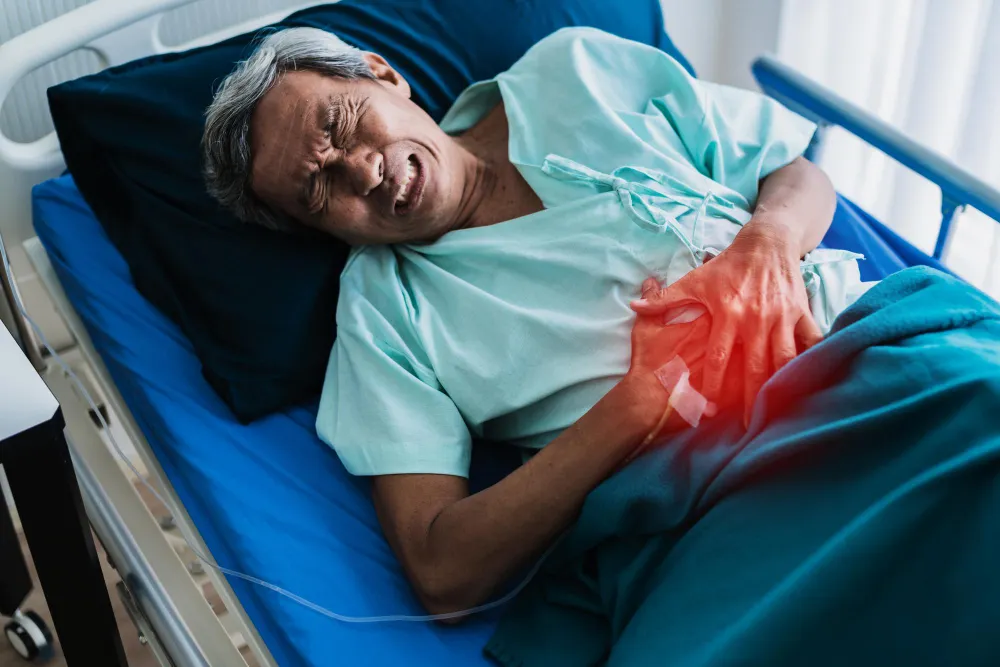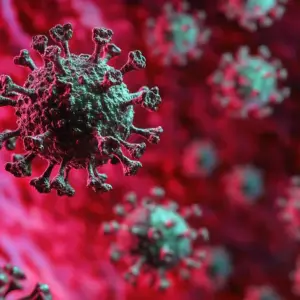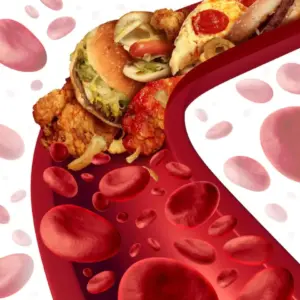Understanding Common Hepatic Disorders and Treatments
Learn about hepatic disorders, their causes, symptoms, diagnosis, and effective treatments for maintaining liver health.

Hepatic Disorders
Hepatic disorders refer to diseases that affect the liver—one of the body’s most vital organs responsible for detoxification, metabolism, and nutrient processing. The liver also regulates hormones, stores glycogen, and helps with blood clotting. When it becomes inflamed or damaged, it can lead to severe health complications if left untreated.
At VS Hospitals, a specialized team of hepatologists and gastroenterologists offers expert diagnosis, management, and treatment for all types of liver disorders. Using advanced imaging technology, precise lab tests, and minimally invasive procedures, the hospital focuses on early detection, effective treatment, and long-term liver health maintenance.

Early Detection Saves Lives
Early detection and treatment are crucial for improving the chances of survival. If you notice any concerning symptoms, consult a healthcare provider immediately.
Signs and Symptoms
Jaundice
Yellowing of the skin and eyes caused by elevated bilirubin levels.
Abdominal pain or swelling
Especially in the upper right side of the abdomen.
Loss of appetite
Common in conditions like hepatitis or fatty liver.
Fatigue and weakness
A result of the liver’s reduced ability to process toxins.
Dark urine and pale stools
Indicate problems with bile flow or liver function.
Itchy skin
Due to accumulation of bile salts in the bloodstream.
Unexplained weight loss
Often a sign of chronic liver disease.
Swelling in legs and ankles
Result of poor protein synthesis and fluid retention.
Nausea and vomiting
Caused by the buildup of toxins in the body.
Blood in Urine
Hematuria - pink, red, or dark urine, the most common symptom
Frequent Urination
Feeling the need to urinate frequently, even when bladder is not full
Painful Urination
Experiencing pain or burning sensation while urinating
Back or Pelvic Pain
Pain that occurs as the cancer grows and spreads
Unexplained Weight Loss
Significant weight loss not related to diet or exercise
Fatigue
Feeling unusually tired or weak without a clear cause
If these symptoms persist, patients should immediately consult the hepatology experts at VS Hospitals for evaluation and early intervention.
Meet Our Expert Hepatic Disorders Specialists
Risk Factors
Smoking
Smoking is one of the leading causes of bladder cancer. Chemicals in tobacco smoke can damage the lining of the bladder, increasing the risk.

Gender
Men are at a higher risk of developing bladder cancer than women.

Chronic Bladder Infections or Inflammation
Conditions such as bladder infections and long-term bladder inflammation can increase the risk.

Exposure to Chemicals
Prolonged exposure to certain chemicals, especially those used in the dye industry, rubber production, and chemical manufacturing, increases the risk.

Excessive alcohol consumption
Leads to alcoholic liver disease or cirrhosis.

Viral infections
Hepatitis A, B, and C are major causes of liver inflammation.

Obesity and poor diet
Trigger non-alcoholic fatty liver disease (NAFLD).

Uncontrolled diabetes
Increases the risk of fat accumulation in the liver.

High cholesterol levels
Contribute to fatty deposits and liver damage.

Use of certain medications
Long-term use of painkillers or steroids can cause liver toxicity.

Genetic disorders
Conditions like hemochromatosis and Wilson’s disease cause abnormal iron or copper buildup.

Exposure to toxins
Industrial chemicals or contaminated food can harm liver cells.

Family history
Genetic predisposition to liver-related diseases.

Hepatic Disorders
Diet and Nutrition
Prevention
Diagnosis
Key Services
Key Facilities
Proper nutrition is crucial for maintaining liver health and preventing further damage. The dietitians at VS Hospitals provide customized meal plans to support liver recovery and detoxification.
- Balanced Diet: Include whole grains, fresh fruits, vegetables, lean proteins, and healthy fats.
- Avoid Fatty and Fried Foods: Minimize saturated and trans fats to reduce liver strain.
- Stay Hydrated: Drinking adequate water helps flush out toxins.
- Limit Sugar and Salt: Excess sugar leads to fat accumulation; excess salt causes fluid retention.
- Include Antioxidant-Rich Foods: Berries, nuts, and green leafy vegetables protect liver cells.
- Opt for Lean Proteins: Eggs, fish, tofu, and legumes promote tissue repair.
- Avoid Alcohol Completely: Even small quantities can worsen liver injury.
- Consume High-Fiber Foods: Supports digestion and toxin removal.
- Moderate Coffee Intake: Some studies suggest coffee protects against liver fibrosis.
- Small, Frequent Meals: Helps stabilize metabolism and prevent nausea.
VS Hospitals’ nutritional experts emphasize patient-specific dietary guidance as part of an integrated care plan for managing all hepatic conditions.
Liver disease is often preventable with early intervention and healthy lifestyle habits. The Hepatology team at VS Hospitals focuses on proactive prevention strategies.
- Limit Alcohol Intake: The simplest and most effective way to prevent liver damage.
- Maintain a Healthy Weight: Prevents fatty liver and insulin resistance.
- Vaccination: Protects against hepatitis A and B infections.
- Practice Safe Hygiene: Wash hands and avoid contaminated food or water.
- Use Medications Cautiously: Avoid self-prescribing or overdosing on painkillers.
- Safe Sexual Practices: Reduces the risk of viral hepatitis transmission.
- Avoid Needle Sharing: Use sterile syringes for medical or cosmetic procedures.
- Regular Exercise: Enhances blood circulation and liver metabolism.
- Routine Liver Check-Ups: Periodic screening for liver enzymes and ultrasound imaging.
- Manage Other Diseases: Keep diabetes, obesity, and cholesterol under control.
At VS Hospitals, preventive programs educate patients about lifestyle management, vaccination schedules, and early screenings to maintain lifelong liver health.
Accurate diagnosis forms the foundation for effective liver disease management. VS Hospitals uses state-of-the-art diagnostic methods to detect and monitor hepatic disorders with precision and speed.
Diagnostic Procedures Include:
- Liver Function Tests (LFTs): Measures enzymes, bilirubin, and proteins to assess liver performance.
- Ultrasound of the Abdomen: Non-invasive imaging to detect fatty deposits, cysts, or tumors.
- CT and MRI Scans: Provide detailed visualization of liver structure and surrounding organs.
- Fibroscan (Elastography): Determines the level of liver stiffness, helping to detect fibrosis or cirrhosis.
- Hepatitis Screening: Blood tests for Hepatitis A, B, and C viruses.
- Biopsy: A small tissue sample examined under a microscope to confirm inflammation, scarring, or cancer.
- Blood Clotting Test (Prothrombin Time): Evaluates the liver’s ability to produce clotting factors.
- Genetic and Metabolic Tests: Identify hereditary conditions like Wilson’s disease.
At VS Hospitals, every patient’s diagnosis is personalized—combining laboratory results, imaging, and medical history for a holistic understanding of liver function.
The Hepatology Department at VS Hospitals provides comprehensive services to address every type of hepatic disorder, from minor inflammation to advanced liver failure.
- Comprehensive Medical Management: Specialized treatments for viral hepatitis, fatty liver, cirrhosis, and autoimmune hepatitis, along with detoxification programs for alcohol-induced liver disease.
- Advanced Interventional Procedures: Image-guided liver biopsy, ERCP for bile duct blockages, and TIPS to manage portal hypertension with minimal invasiveness.
- Liver Cancer Treatment: Multidisciplinary cancer care including targeted therapy, chemotherapy, radiotherapy, surgical resection, and ablation for optimal outcomes.
- Liver Transplant Services: End-to-end transplant care covering pre-surgical evaluation, post-operative monitoring, and lifelong follow-up support.
- Nutritional & Lifestyle Counseling: Personalized diet and weight management programs to support liver health and prevent disease progression.
- Holistic & Compassionate Care: Expert hepatologists combine evidence-based medicine with emotional and psychological support to ensure full recovery and improved quality of life.
At VS Hospitals, the integration of clinical expertise and compassionate care ensures complete management ofoth acute and chronic liver conditions.
VS Hospitals offers one of the most advanced hepatic care units in Chennai, designed for both diagnosis and treatment of complex liver disorders.
- State-of-the-Art Hepatology Unit: Dedicated department with advanced monitoring and intervention systems.
- Comprehensive Diagnostic Laboratory: Equipped for liver enzyme assays, viral markers, and metabolic testing.
- Ultrasound, CT, and MRI Units: Provide detailed imaging for accurate disease mapping.
- Liver Fibroscan Technology: Non-invasive method to assess fibrosis without biopsy.
- 24/7 Emergency and ICU Care: Immediate support for acute liver failure and bleeding complications.
- Endoscopy and ERCP Suite: For diagnostic and therapeutic bile duct procedures.
- Oncology and Transplant Support: Complete facilities for liver cancer and transplant evaluation.
- Pharmacy and Nutrition Center: Offers supplements, vitamins, and liver-safe medications.
- Rehabilitation and Counseling Services: Focused on patient recovery and emotional well-being.
The world-class infrastructure and expert team at VS Hospitals ensure the highest standards of liver care, combining advanced technology with personalized medical attention.
Top Medical Facilities at Our Multispeciality Hospital – Here’s What Makes Us Different!
Ready to Begin Your Hepatic Disorders Journey?
Learn More About Hepatic Disorders
Frequently Asked Questions
VS Hospitals treats a wide range of hepatic disorders including fatty liver, hepatitis A–E, cirrhosis, alcoholic liver disease, autoimmune hepatitis, and liver cancer. The hospital provides both medical and surgical solutions, using advanced imaging, lab diagnostics, and expert hepatology care to ensure comprehensive liver management.
Diagnosis involves a combination of liver function tests, imaging (ultrasound, CT, or MRI), and sometimes a biopsy. VS Hospitals uses modern technology like Fibroscan and ELISA-based viral tests to detect liver inflammation or scarring early. This enables accurate diagnosis and personalized treatment for every patient.
Yes. Most liver diseases are preventable through healthy lifestyle habits. VS Hospitals recommends regular screenings, avoiding alcohol, eating a balanced diet, exercising, and taking vaccinations against hepatitis. Early medical check-ups help detect problems before they progress, ensuring the liver remains healthy and functional throughout life.
